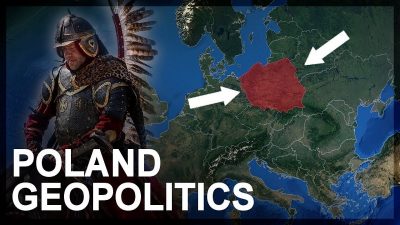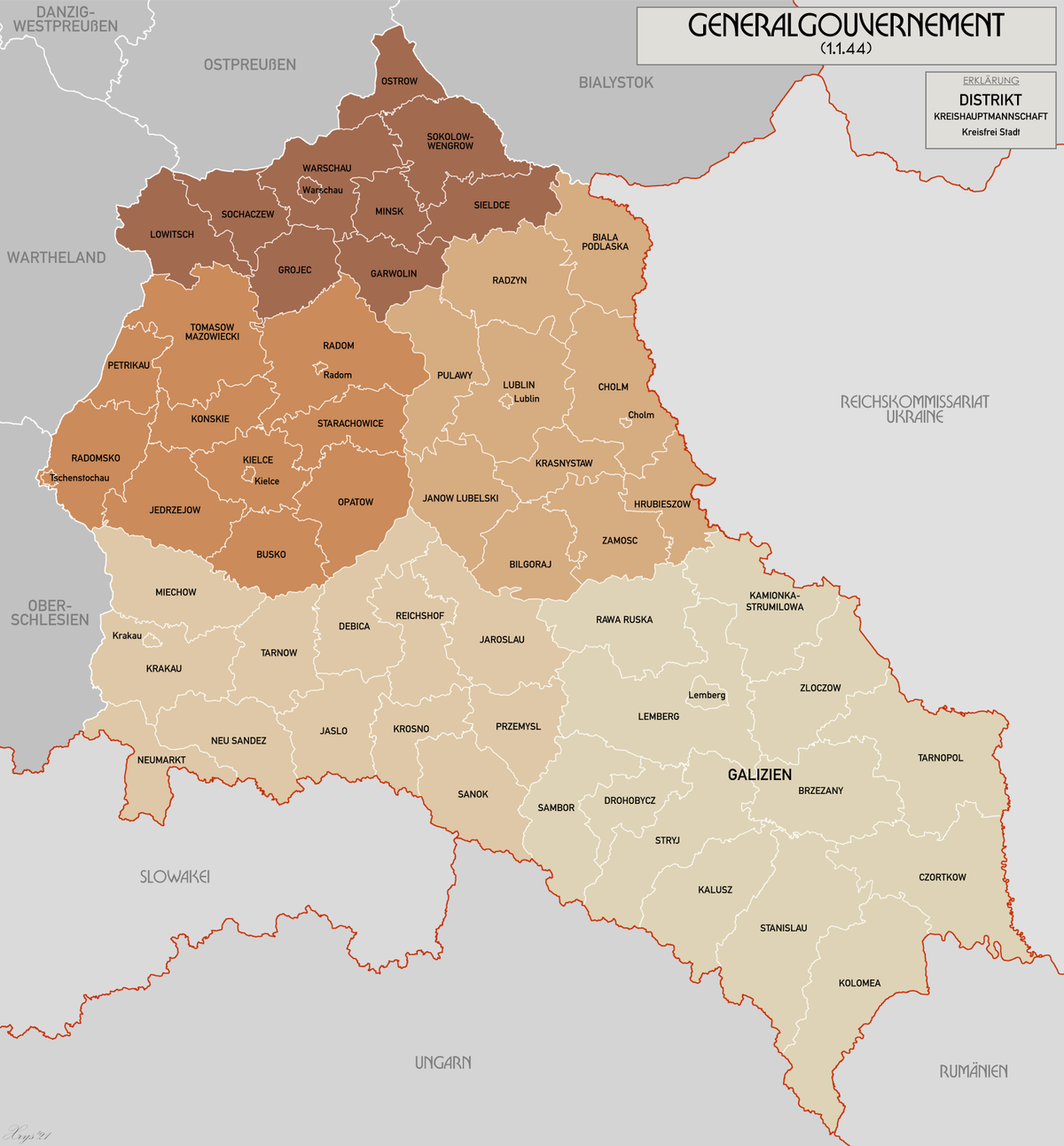“Redivivus”, German Border Revisionism: German-Polish Relations. Another Partition of Poland?

All Global Research articles can be read in 51 languages by activating the “Translate Website” drop down menu on the top banner of our home page (Desktop version).
To receive Global Research’s Daily Newsletter (selected articles), click here.
Follow us on Instagram and Twitter and subscribe to our Telegram Channel. Feel free to repost and share widely Global Research articles.
***
This is a very sensitive moment for both Poles, and Ukrainians. It seems that European border revisionism is just going to start, involving at least Hungary, Romania and Lithuania. In that case German-Polish relations are crucial. Already in the early 90s there were many concerns about German revanchism towards former borderlands. Albeit it has been decided between Washington and Berlin that instead of reclaiming the Polish-German border issue, that would be more profitable to incorporate the entire potential of Poland into the new Great Germany economy area. Peripherisation of Poland was thus guaranteed by German enterprises, in the interests of American globalism. However situation is dynamic now. Fragmentation of Europe into an Anglo-Saxon and a Franco-German parts opens the question: what about Poland?
Since Warsaw is determined to follow the Westminster orders, another partition of Poland seems completely realistic, under cover of the territories exchange. In form of the federation with Ukraine, Poland will supposedly return to the East, and the loss of the Polish colony will be compensated for the Germans by the restoration of their former borders. Of course, this is only one of the possible scenarios, but we have clearly entered a period of more and more rapid changes, including changes to the World maps.
Working on regaining Polish property in the Eastern Borderlands, I have heard many times doubts whether raising this question poses a threat to our Western territories by stimulating German border revisionism. I have also explained why these issues are not related to each other at all, being associated only in propaganda aimed at preventing Poles from rebuilding their own economic strength. This does not mean that Szczecin/Stettin, Zielona Góra/ Grünberg, Wrocław/Breslau or Opole/ Oppeln are effectively protected against revanchism. Just opposite, present Polish Government position may directly lead to the resumption of the western border issue, and thus leave Poland in the shape of the Duchy of Warsaw.
Generalgouvernement für die besetzten polnischen Gebiete
In 1989, taking control over Poland from the Soviets, the United States decided to manage that through its economically key European vassal, i.e. Germany. In effect Polish industry has been taken over and/or destroyed, Polish market power was fully controlled and significant source of cheap labour force has been secured. What is however even more important, that it costed nearly nothing. The East and West Germany integration, although being an excellent opportunity to liquidate Germany’s capital surpluses, turned out to be a huge burden and a social failure. Therefore, Berlin was at no stage interested in repeating this experiment with the areas once lost by the Third Reich, nor to pay pensions to their inhabitants, neither to invest in deprived infrastructure of Silesia, Pomerania and East Prussia. Schluß!
German middleman
Position of Poland towards Germany is now quite similar to the Russian-Polish relations in the late 18th century. The dominant power did not want to annex the subordinate country in whole or even in part as long as it was not necessary, but tried to eliminate, counter and balance competitive influence. Of course, the difference boils down to the fact that contemporary Germany is by no means an independent nor a prime-class power, only performing American tasks in Central Europe. So, for the time being, Berlin was staring impotently at Washington’s revealing presence. However, this situation could change if the Anglo-Saxons would try to use Warsaw in a way that could mean direct losses for the German economy.
Putting simply: ALL OF POLAND is part of Germany, economically. That is why Germans have not introduced any directly revanchist politics. The issue of German claims is therefore not in any way related to the issue of Polish property, or even to the Polish eastern border. This is ONLY a derivative of Polish subordination to the German economic policy. Thus, Germany may submit claims when Poland becomes part of the British Europe project, leaving the European Union. Exactly like Russia agreed (reluctantly) to the partitions of Poland in the 18th Century, preferring to control only a part of it, than losing any influence. The road to losing Wrocław runs through London and Kyiv, not through Lviv. Not Polish, nor even German revisionist attitudes are threats, but Anglo-Saxon imperialism.
British Europe
Prominent Polish politician, Adam Glapinski, President of the National Bank of Poland, an enthusiastic supporter of Anglo-Saxon policy, i.e. provoking Germany to a new partition of Poland, attacks:
“Germany may find itself in a certain chaos, but it would not hinder the realisation of its basic national interests which has been carried for several decades. It used to be about the merge of the German states, or the absorption of practically the GDR, i.e. the former Soviet occupation zone, and since the completion of this task, about regaining some form of their former lands, which are now within the borders of Poland and subordinating the entire belt of countries between Germany and Russia. This is Germany’s vision of the balance in future Europe. BREXIT opened the way to the implementation of this scenario, based on the cooperation of two empires: Russian and German, with the countries in the middle, within the spheres of influence of both powers”.
This must be understood precisely. The Establishment already knows that at the moment when Poland accepts these new “British guarantees” (exactly like in 1939, when it provoked WW2), leaves the EU and announces the establishment of UkroPolin, the “Polish-Ukrainian Union” under Anglo-Saxon administration – Germany will raise the issue of borders.
The transformation of the European Union may be an additional catalyst. Berlin and Paris seem determined to complete the process of its integration, i.e. disclosure as a federal state, more or less within the borders of the euro zone with colonial areas around. Who drops out, then will suffer the consequences. As in the case of Greece, the European branch of the global financiers will not only threaten, but simply wind-up local finances and banking. German industrial sector will have to get compensation for the loss of the Polish workers and consumers. That would be even easier to assimilate Breslau again, than to worry about Rzeszow in the Polish-Ukrainian border, where now about 40% of inhabitants are immigrants from Ukraine.
Another partition of Poland
Even a thousand recovered Polish estates and properties in the East will not shift the course of the Oder and will not affect Polish government on the Western Regained Lands. One signature on the act of “union” with Ukraine, one move towards the British-Polish-Ukrainian alliance – will detach from Poland everything that was gained in 1945, and maybe more. Berlin will be paid off by Washington and London with Polish lands, and the rest of them will be attached to the Ukrainian colony of Anglo-Saxons, undergoing further accelerated Ukrainianisation.. Thanks to the unanimous policy of the “anti-German government” and the “pro-German opposition”, Poland will lose Wrocław and Szczecin to see how Rzeszów, Przemyśl, Chełm, Lublin and the rest become UkroPolin cities.
Unfortunately, there is no third exit between Berlin and Brussels on the one side, and London and Kiev on the other. Another partition of Poland is already underway.
*
Note to readers: Please click the share buttons above or below. Follow us on Instagram and Twitter and subscribe to our Telegram Channel. Feel free to repost and share widely Global Research articles.
Konrad Rękas is a renowned geopolitical analyst and a regular contributor to Global Research.
Featured image is from OneWorld


